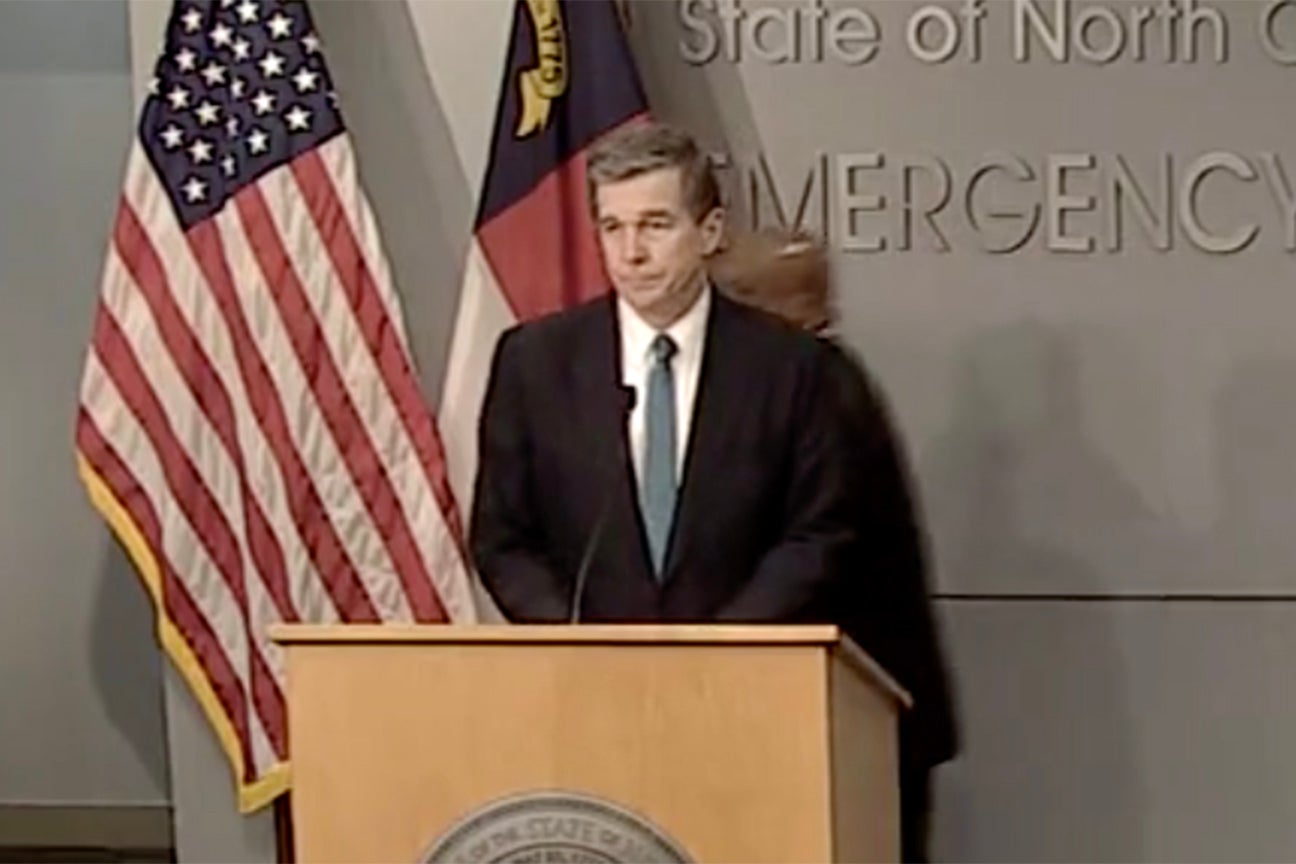North Carolina business capacity restrictions begin next week
Published 6:44 am Friday, April 10, 2020

- Governor Roy Cooper at the Thursday, April 9 press conference.
|
Getting your Trinity Audio player ready...
|
By GARY D. ROBERTSON, Associated Press
North Carolina groceries and other retailers must meet capacity restrictions and cleanliness standards if they want to keep operating next week under expanding social distance directives to blunt COVID-19, Gov. Roy Cooper announced on Thursday.
Under a new executive order Cooper signed, retailers, pharmacies and other businesses will have to limit entry so that occupancy can’t be more than 20% of their fire-code capacity, or above 5 customers per 1,000 square feet. Retailers also will have to mark out 6 feet of spacing in cashier lines and high-traffic areas.
“This should make shopping safer for customers and retail employees and help prevent stores from becoming flash points for virus transmission,” he said at a news conference. “We want to ensure that retail stores are as safe as possible for everyone, so that no one is afraid to go out for basic necessities.”
The retail rules, which take effect Monday afternoon and last for 30 days, also require frequent and routine cleaning of “high-touch” areas. Cooper signaled earlier this week that the restrictions were coming.
While a statewide stay-at-home order began 10 days ago, residents can still go to the grocery stores, access medical care or get exercise. A ban on gatherings of more than 10 people, however, contrasted with crowds at groceries and big box retailers.
Cooper’s latest order also gives more strength to directives announced Wednesday by state health officials to boost patient and staff protections at nursing homes, where outbreaks are ongoing at 16 locations statewide. They include daily staff and patient checks for symptoms and employees wearing face masks at all times.
For most people, the coronavirus causes mild or moderate symptoms, and the vast majority survive. But for others, especially older adults and people with existing health problems, it can cause pneumonia or death.
The Cooper administration and legislative leaders have been talking about law changes to respond to the new coronavirus that will be needed when lawmakers next meet. The session is set to begin April 28. Cooper and lawmakers already are committed to waiving interest on certain unpaid taxes.
On Thursday, House Speaker Tim Moore and Senate leader Phil Berger said they were prepared to delay Division of Motor Vehicles inspection deadlines retroactively.
The State Board of Education on Thursday also voted to ask legislators to waive state student testing and accountability mandates this school year. K-12 public schools are currently closed through May 15. And board action means some new and early-career teachers will have one more year to meet licensing requirements, provided that the legislature agrees.
RECENT HEADLINES:
Three additional Dare cases of COVID-19 linked to Peak Resources




